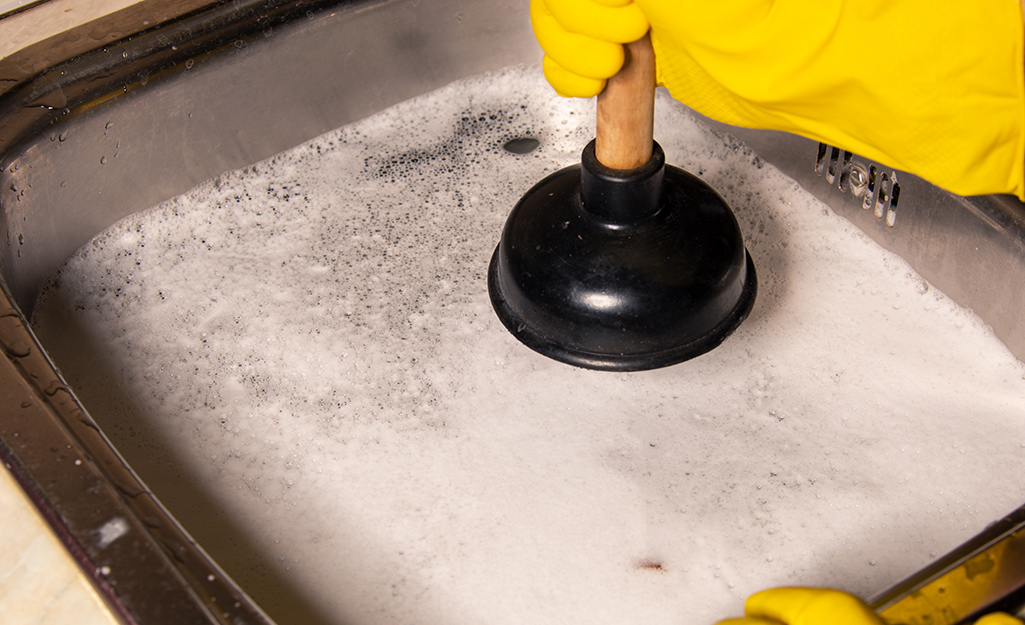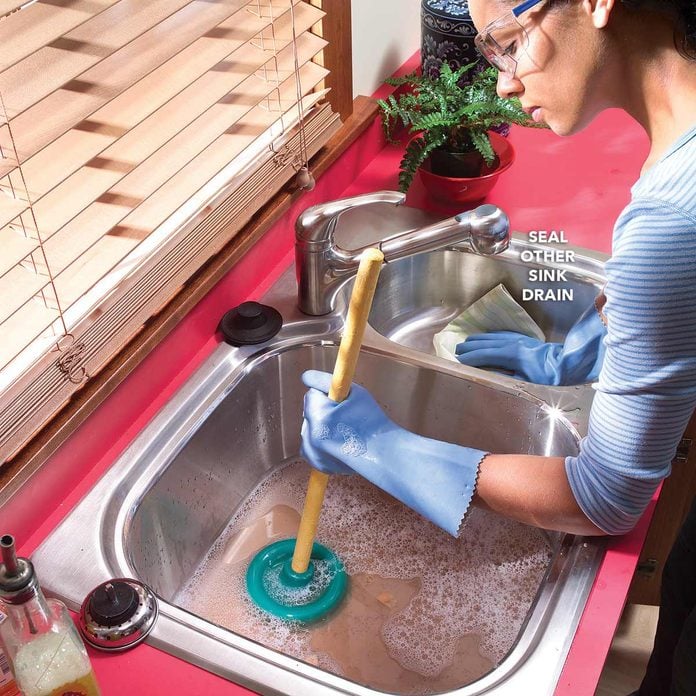Mastering Plungers and Drain Cleaner: Pro Strategies
Mastering Plungers and Drain Cleaner: Pro Strategies
Blog Article
Have you been searching for insight on Tips on How to Effectively Use a Plunger?

Introduction
Correct maintenance of house drains pipes is essential for protecting against clogs and making certain smooth water flow. One of the trick devices in every homeowner's toolkit is the bettor, alongside different drain cleansers made to deal with persistent blockages properly. This article explores exactly how to utilize bettors and drainpipe cleaners successfully to maintain your drains streaming easily.
Section 1: Understanding Plungers
Types of Plungers
There are numerous sorts of plungers available, each designed for various sorts of drains and clogs. One of the most typical types consist of cup plungers, flange bettors, and accordion plungers.
Just How Plungers Work
Bettors service the principle of developing pressure and suction to displace blockages. When properly applied over a drainpipe, they produce a vacuum cleaner that can pull out particles or separate obstructions.
Picking the Right Plunger
Choosing the appropriate plunger depends upon the sort of drain and the nature of the blockage. Mug bettors are optimal for sinks and bathtubs, while flange bettors are better fit for bathrooms due to their layout.
Usual Mistakes with Plungers
Preventing these mistakes makes sure efficient plunging: inappropriate seal around the drain, inadequate pressure, and unclear surrounding particles.
Area 2: Utilizing Plungers Efficiently
Prep work
Before plunging, make certain the bettor covers the drainpipe completely and develops a limited seal. Clear any type of visible debris around the drainpipe opening.
Method
Start with mild diving motions to build suction. Rise pressure gradually, making use of a consistent rhythm. Repeat as required till the drain clears.
Fixing Tips
If plunging does not work, try adjusting the seal, applying oil jelly for a better seal, or making use of a different kind of bettor.
Section 3: Recognizing Drain Cleansers
Sorts Of Drainpipe Cleansers
Drain cleaners can be chemical or chemical. Chemical cleansers use strong chemicals to dissolve obstructions, while chemical cleansers use natural enzymes to break down organic matter.
Exactly How Drainpipe Cleaning Company Job
Chemical cleansers respond with obstructions to liquify them, while chemical cleansers break down natural products like hair and oil without damaging pipelines.
Safety and security Factors to consider
Constantly put on gloves and eye defense when utilizing chemical drainpipe cleansers. Make certain adequate air flow and adhere to manufacturer directions meticulously.
Eco-Friendly Alternatives
Think about utilizing vinegar and cooking soft drink or enzyme-based cleansers for eco-friendly options that are much safer for pipelines and the setting.
Area 4: Making Use Of Drain Cleaning Company Successfully
Application Techniques
Put chemical cleaners directly right into the drain opening. Enable them to benefit the suggested time prior to purging with warm water. Chemical cleansers ought to sit overnight.
Safety measures
Avoid blending various types of cleaners, as this can create poisonous fumes. Never make use of chemical cleaners combined with a plunger, as splashing can occur.
Dealing With Persistent Blockages
For relentless obstructions, take into consideration making use of a pipes serpent or calling a specialist plumbing professional to prevent damage to pipelines.
Verdict
To conclude, comprehending exactly how to use bettors and drain cleaners properly is vital for preserving healthy and balanced plumbing systems. By choosing the right devices and methods, property owners can tackle small clogs and protect against major pipes issues down the line.
How To Properly Use A Plumbing Snake To Clear Drains
When any drain clogs in our home arise, we tend to gravitate toward the plunger and little else. In cases where the plunger and its vacuum-created pressure are not able to clear clogs, many immediately move to harmful chemicals or simply call their plumber to fix the issue.
we’re happy to help with all drain cleaning needs and concerns. This includes informing you on a few other home remedies you may have at your disposal for minor to moderate clogs, one of which is the use of a plumbing snake. Many people have never used one of these before – let’s go over the steps to take when your drain clogs and you have a plumbing snake available.
Attempt Plunger Use
The first step here, as we noted above, should indeed be to grab your plunger when you notice a drain clog and attempt to resolve it this way. If you’re unsure how to use a particular type of plunger, our plumbers can answer any questions you have. If this doesn’t do the trick, however, you move on to the snake.
Locate And Prepare Snake
A plumbing snake is a metal or plastic device that’s generally about a quarter of an inch thick. It’s design with significant extensions, meant to reach down into your clogged drain and push the clog out. Snakes also contain drain augers that will latch onto and push stubborn blockages.
If your plunger doesn’t clear a clog, locate your snake and bring it to the drain in question. We also recommend keeping a bucket nearby to collect the clog once you pull it out, plus we’d advise wearing goggles and possibly protective gloves.
Feed Snake
Once you’re ready to go, feed the snake slowly down the drain, using the crank device it comes with to keep it moving until it finds the clog. Once this happens, much of the clog will be latched onto the coil so you can pull it out, while the rest will simply break up and flow downward.
Detach Debris
Remove the snake slowly from the drain, and once you’ve done so, pick off any debris that’s stuck to the coil. This is another area where wearing gloves is a must.
Flush Drain
Finally, take a few minutes to ensure the snake has done its job correctly. If you’ve been using it on a toilet, flush the toilet a couple times and make sure everything flows well. If you’ve used it on a different drain, flush it with some room temperature water.
https://www.mybuddytheplumber.com/blog/how-to-properly-use-a-plumbing-snake-to-clear-drains/

Application Techniques
Put chemical cleaners directly right into the drain opening. Enable them to benefit the suggested time prior to purging with warm water. Chemical cleansers ought to sit overnight.
Safety measures
Avoid blending various types of cleaners, as this can create poisonous fumes. Never make use of chemical cleaners combined with a plunger, as splashing can occur.
Dealing With Persistent Blockages
For relentless obstructions, take into consideration making use of a pipes serpent or calling a specialist plumbing professional to prevent damage to pipelines.
Verdict
To conclude, comprehending exactly how to use bettors and drain cleaners properly is vital for preserving healthy and balanced plumbing systems. By choosing the right devices and methods, property owners can tackle small clogs and protect against major pipes issues down the line.
How To Properly Use A Plumbing Snake To Clear Drains
When any drain clogs in our home arise, we tend to gravitate toward the plunger and little else. In cases where the plunger and its vacuum-created pressure are not able to clear clogs, many immediately move to harmful chemicals or simply call their plumber to fix the issue.
we’re happy to help with all drain cleaning needs and concerns. This includes informing you on a few other home remedies you may have at your disposal for minor to moderate clogs, one of which is the use of a plumbing snake. Many people have never used one of these before – let’s go over the steps to take when your drain clogs and you have a plumbing snake available.
Attempt Plunger Use
The first step here, as we noted above, should indeed be to grab your plunger when you notice a drain clog and attempt to resolve it this way. If you’re unsure how to use a particular type of plunger, our plumbers can answer any questions you have. If this doesn’t do the trick, however, you move on to the snake.
Locate And Prepare Snake
A plumbing snake is a metal or plastic device that’s generally about a quarter of an inch thick. It’s design with significant extensions, meant to reach down into your clogged drain and push the clog out. Snakes also contain drain augers that will latch onto and push stubborn blockages.
If your plunger doesn’t clear a clog, locate your snake and bring it to the drain in question. We also recommend keeping a bucket nearby to collect the clog once you pull it out, plus we’d advise wearing goggles and possibly protective gloves.
Feed Snake
Once you’re ready to go, feed the snake slowly down the drain, using the crank device it comes with to keep it moving until it finds the clog. Once this happens, much of the clog will be latched onto the coil so you can pull it out, while the rest will simply break up and flow downward.
Detach Debris
Remove the snake slowly from the drain, and once you’ve done so, pick off any debris that’s stuck to the coil. This is another area where wearing gloves is a must.
Flush Drain
Finally, take a few minutes to ensure the snake has done its job correctly. If you’ve been using it on a toilet, flush the toilet a couple times and make sure everything flows well. If you’ve used it on a different drain, flush it with some room temperature water.
https://www.mybuddytheplumber.com/blog/how-to-properly-use-a-plumbing-snake-to-clear-drains/

I came across that piece on A Guide to Plungers (and How to Use Them) while doing a search on the search engines. Loved our write-up? Please quickly share it. Let others find it. We enjoy your readership.
Need Help? Hire Us Now! Report this page